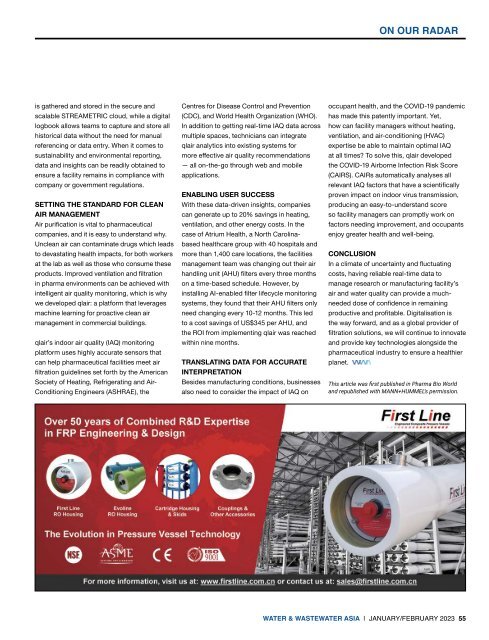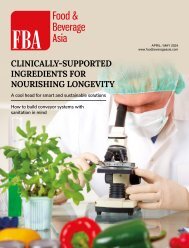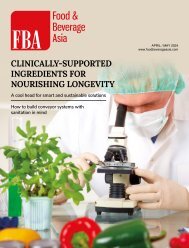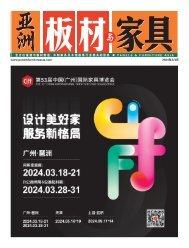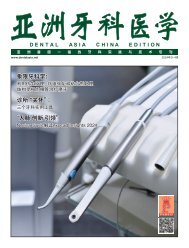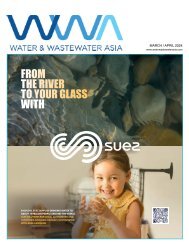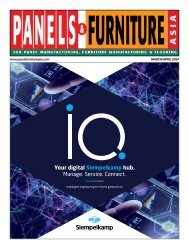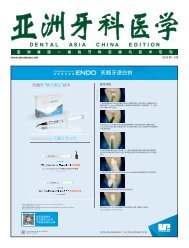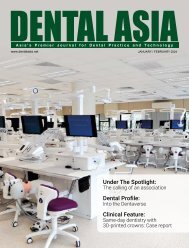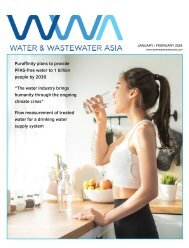Water & Wastewater Asia January/February 2023
Water & Wastewater Asia is an expert source of industry information, cementing its position as an indispensable tool for trade professionals in the water and wastewater industry. As the most reliable publication in the region, industry experts turn this premium journal for credible journalism and exclusive insight provided by fellow industry professionals. Water & Wastewater Asia incorporates the official newsletter of the Singapore Water Association (SWA).
Water & Wastewater Asia is an expert source of industry information, cementing its position as an indispensable tool for trade professionals in the water and wastewater industry. As the most reliable publication in the region, industry experts turn this premium journal for credible journalism and exclusive insight provided by fellow industry professionals. Water & Wastewater Asia incorporates the official newsletter of the Singapore Water Association (SWA).
You also want an ePaper? Increase the reach of your titles
YUMPU automatically turns print PDFs into web optimized ePapers that Google loves.
ON OUR RADAR<br />
is gathered and stored in the secure and<br />
scalable STREAMETRIC cloud, while a digital<br />
logbook allows teams to capture and store all<br />
historical data without the need for manual<br />
referencing or data entry. When it comes to<br />
sustainability and environmental reporting,<br />
data and insights can be readily obtained to<br />
ensure a facility remains in compliance with<br />
company or government regulations.<br />
SETTING THE STANDARD FOR CLEAN<br />
AIR MANAGEMENT<br />
Air purification is vital to pharmaceutical<br />
companies, and it is easy to understand why.<br />
Unclean air can contaminate drugs which leads<br />
to devastating health impacts, for both workers<br />
at the lab as well as those who consume these<br />
products. Improved ventilation and filtration<br />
in pharma environments can be achieved with<br />
intelligent air quality monitoring, which is why<br />
we developed qlair: a platform that leverages<br />
machine learning for proactive clean air<br />
management in commercial buildings.<br />
qlair’s indoor air quality (IAQ) monitoring<br />
platform uses highly accurate sensors that<br />
can help pharmaceutical facilities meet air<br />
filtration guidelines set forth by the American<br />
Society of Heating, Refrigerating and Air-<br />
Conditioning Engineers (ASHRAE), the<br />
Centres for Disease Control and Prevention<br />
(CDC), and World Health Organization (WHO).<br />
In addition to getting real-time IAQ data across<br />
multiple spaces, technicians can integrate<br />
qlair analytics into existing systems for<br />
more effective air quality recommendations<br />
— all on-the-go through web and mobile<br />
applications.<br />
ENABLING USER SUCCESS<br />
With these data-driven insights, companies<br />
can generate up to 20% savings in heating,<br />
ventilation, and other energy costs. In the<br />
case of Atrium Health, a North Carolinabased<br />
healthcare group with 40 hospitals and<br />
more than 1,400 care locations, the facilities<br />
management team was changing out their air<br />
handling unit (AHU) filters every three months<br />
on a time-based schedule. However, by<br />
installing AI-enabled filter lifecycle monitoring<br />
systems, they found that their AHU filters only<br />
need changing every 10-12 months. This led<br />
to a cost savings of US$345 per AHU, and<br />
the ROI from implementing qlair was reached<br />
within nine months.<br />
TRANSLATING DATA FOR ACCURATE<br />
INTERPRETATION<br />
Besides manufacturing conditions, businesses<br />
also need to consider the impact of IAQ on<br />
occupant health, and the COVID-19 pandemic<br />
has made this patently important. Yet,<br />
how can facility managers without heating,<br />
ventilation, and air-conditioning (HVAC)<br />
expertise be able to maintain optimal IAQ<br />
at all times? To solve this, qlair developed<br />
the COVID-19 Airborne Infection Risk Score<br />
(CAIRS). CAIRs automatically analyses all<br />
relevant IAQ factors that have a scientifically<br />
proven impact on indoor virus transmission,<br />
producing an easy-to-understand score<br />
so facility managers can promptly work on<br />
factors needing improvement, and occupants<br />
enjoy greater health and well-being.<br />
CONCLUSION<br />
In a climate of uncertainty and fluctuating<br />
costs, having reliable real-time data to<br />
manage research or manufacturing facility’s<br />
air and water quality can provide a muchneeded<br />
dose of confidence in remaining<br />
productive and profitable. Digitalisation is<br />
the way forward, and as a global provider of<br />
filtration solutions, we will continue to innovate<br />
and provide key technologies alongside the<br />
pharmaceutical industry to ensure a healthier<br />
planet.<br />
This article was first published in Pharma Bio World<br />
and republished with MANN+HUMMEL’s permission.<br />
WATER & WASTEWATER ASIA | JANUARY/FEBRUARY <strong>2023</strong> 55


